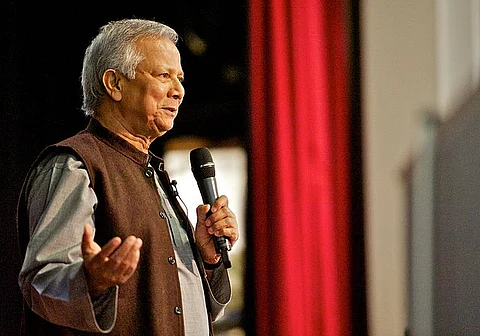

Bangladesh’s interim leader, Nobel laureate Muhammad Yunus, announced Friday that national elections will be held in early April 2026.
This marks the first vote since the ousting of former Prime Minister Sheikh Hasina following a student-led uprising in August 2024, which ended her 15-year rule.
Yunus declared the polls would occur "on any day in the first half of April 2026," during a televised Eid al-Adha address. He emphasized that the Election Commission will release a detailed roadmap later, citing the need for institutional reforms to ensure credibility. The caretaker government had previously suggested a window between December 2025 and June 2026 but now faces pressure from major parties demanding faster timelines.
The announcement follows months of political turmoil triggered by the 2024 uprising, which saw Hasina flee to India after security forces killed over 300 protesters. Her government, accused of human rights abuses and electoral manipulation, was replaced by Yunus’s interim administration tasked with judicial and electoral reforms. The Awami League remains banned pending trials for crimes against humanity during the crackdown.
Yunus stressed that Bangladesh’s history of "flawed elections" enabled "fascist" regimes, making institutional overhauls "of utmost importance" to avoid renewed crisis. However, the Bangladesh Nationalist Party (BNP) — now the election frontrunner — and Army Chief General Waker-Uz-Zaman have pushed for December 2025 polls, warning delays risk instability. New parties like the National Citizen Party (founded by protest leaders) support Yunus’s timeline but demand concrete reforms first.
Logistical hurdles loom, including April’s pre-monsoon storms and conflicts with public exam schedules that could strain election staffing. Meanwhile, Yunus’s government grapples with slow progress on key reforms like judicial independence and anti-corruption measures, amid escalating protests by civil servants and activists.